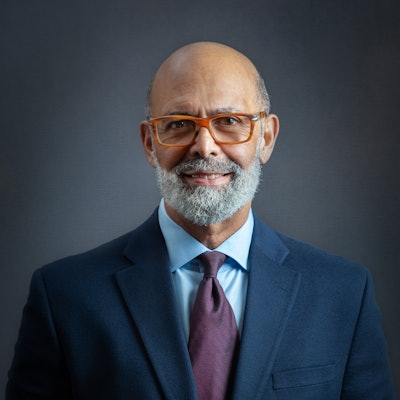 Dr. Michael L. Lomax
Dr. Michael L. Lomax
The comprehensive report, titled “Flourishing: Bolstering the Mental Health of Students at HBCUs and PBIs," examined mental health indicators among 2,504 students across 16 HBCUs and two predominantly Black institutions (PBIs) during the 2022-2023 and 2023-2024 academic years.
“This research confirms what we've long understood about the unique power of HBCUs to nurture not just academic achievement, but holistic well-being among HBCU students,” said Dr. Michael L. Lomax, UNCF president and CEO. "Even with fewer resources than our peers, these institutions create environments where students are affirmed and celebrated, fostering remarkable mental resilience despite significant socioeconomic challenges."
The study, conducted in partnership with UNCF's Institute for Capacity Building, the Healthy Minds Network, and The Steve Fund, revealed what researchers call “The HBCU Effect” on mental health:
- 45% of HBCU students report “flourishing” mental health compared to 36% in national samples and 38% among Black students at predominantly white institutions (PWIs)
- 83% of HBCU students report feeling part of their campus community versus 73% nationally and 72% for Black students at PWIs
- HBCU students report significantly lower rates of anxiety, substance use disorders, and eating disorders than the national average
- HBCU students are significantly less likely to keep negative feelings to themselves when feeling sad (74%) compared to Black students at PWIs (86%)
- More HBCU students believe their institutions prioritize mental well-being (78%) compared to Black students at PWIs (73%)
Despite these positive outcomes, the research identified notable mental health challenges for HBCU students:
- 51% of HBCU students report their financial situation as “always” or “often” stressful, with 78% of financially stressed students experiencing one or more mental health problems
- 54% of HBCU students with moderate to severe symptoms reported receiving no mental health treatment, higher than both the national average (41%) and Black students at PWIs (47%)
- HBCU students report higher rates of perceived stigma around mental health treatment (52%) compared to national averages (41%)
The findings highlight a critical need for increased resources and support for HBCUs, which are achieving remarkable outcomes despite limited funding. Policymakers and higher education leaders are being called upon to address these disparities and provide targeted investments to further improve outcomes for these resilient students.
UNCF will host two public webinars to discuss the findings: a partner webinar with the Healthy Minds Network and The Steve Fund on March 20, and a special focus webinar on Black women's mental health at HBCUs on March 26.
UNCF, founded in 1944, has raised more than $6 billion to support students' access to higher education, provide scholarships, and strengthen HBCUs. Each year, UNCF supports more than 50,000 students at more than 1,100 colleges and universities across the country, including 37 UNCF-member HBCUs.















